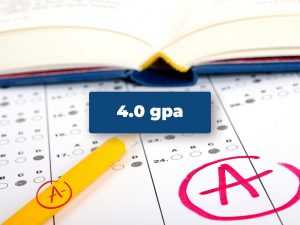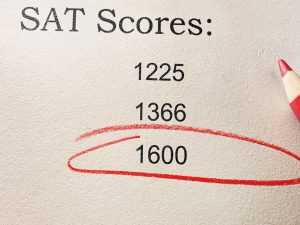Have you received an ACT score of 30, and now you are clueless about its meaning? Are you wondering whether 30 on the ACT is good or not? Or, is your dream college asking for an ACT 30 score for admission, but you want to know what it equals in percentage.
Well, this article will tell you everything about ACT 30 that you need to know no matter what the situation is. You can go through this blog before preparing for the examination or applying to your desired college to get the answers to all your questions.
Let’s begin with what ACT is before we tell you whether 30 on the ACT is good or not.
What Is The ACT?
The ACT is a college entrance exam that students need to clear to get admission into a University. Therefore, it is one of the most important criteria that the panelists check before shortlisting candidates for enrollment. The other aspects that they consider are the SAT results and GPA scores.
The ACT exam consists of Mathematics, English, Reading, and Science sections. There is also another optional writing section where students can appear to improve their scores. However, not all institutes ask for this score. While some institutes might ask for it, others might not. So, it’s better to clarify from the college to decide whether to sit for it or skip it.
ACT exams are usually 3 hours long and objective in nature. You will get multiple choice questions from all the sections. ACT exams don’t have a negative marking policy. So, you can answer all the questions without stressing about the impact it will have on the total score.
Is A 30 A Good ACT Score?
Now let’s answer your question – is 30 a good ACT score? Well, it is an outstanding result. This score equals 93 percent, which is brilliant. You are already in the topper frame if you have attained this score. So, congratulations on that. But, if you are aiming for it in the upcoming examination, you can use the tips below to get a 30 ACT score at ease.
How Is ACT Score Calculated?
Whatever result you achieve in each section, all are combined to form a composite score. The University authorities convert this score into a scaled score. So, your score will range from 1 to 36. 1 is the lowest ACT score, and 36 is the perfect ACT score. Aim for a higher score, such as a ACT 30 score, to increase the college options for sending an application.
What Is ACT Superscore?
ACT superscoring is a common testing strategy implemented by many colleges. With this strategy, you can superscore your score before including it in the application. In simple terms, you can take as many ACT exams as possible, derive the best score, and send it for evaluation.
For instance, if you take the ACT exam thrice and achieve the highest score in the second one (say, ACT 30), send this score to the college. This is the best way to improve the score if you are not satisfied with your first exam results.
What Colleges Can I Get Admission With ACT 30 Score?
Here is a list of top colleges where you can apply with a 30 ACT percentile. Scroll down to select your favorite from the list.
| College | Average ACT |
| Colgate University | 31 |
| Davidson College | 31 |
| University of Southern California | 32 |
| Carleton College | 32 |
| University of Richmond | 31 |
| Grinnell College | 32 |
| Lehigh University | 31 |
| University of North Carolina at Chapel Hill | 30 |
| College of William and Mary | 32 |
| Skidmore College | 29 |
| University of Miami | 30 |
| University of Rochester | 32 |
| Lafayette College | 30 |
| Santa Clara University | 30 |
| Kenyon College | 31 |
How Can I Get 30 ACT If I Don’t Have One?
So, you don’t have 30 ACT percentile to apply to your dream college and are planning to reappear for the examination. First, we would like to tell you that don’t get disappointed! You can get one if you follow our tips as we mention for your help.
We agree 30 ACT percentile is not an easy score to achieve. But we also believe that hard work pays off big time. So, study hard, walk through our guide, take help, and see how you come out with flying colors in the next examination.
1. Create A Study Plan
Study planning is the first thing you need to do before preparing the topics. Allow yourself 10, 20, 40, 80, or 150 hours of study, depending on your time. For example: If you don’t have many days to prepare for the examination, allot more study hours to get the preparation done.
Similarly, if you have a lot of time to prepare, you can limit yourself to 10 hours of study. Once you have figured this out, draft a schedule. Make sure you touch upon every topic every day, so you don’t forget any. Finally, follow the study plan strictly.
2. Use High-Quality Study Guides
Textbook studies can give you an average score. But if you need ACT 30, you have to step up your preparation. How can you do that? By preparing from high-quality study guides. You can refer to one or more study guides to understand different angles of a topic. The more study guides you prepare from, the better will be your result. But, aim for study guides written by well-qualified professors to ensure you are getting educated rightly.
3. Solve Practice Tests
Once your preparation is complete, solve practice tests. You will never know how well prepared you are unless you solve practice tests and see your scores. Analyze where you are going wrong, and study for that section again. Solve another practice test once done, and, likewise, you can ace the examination with outstanding grades.
4. Get Key Strategies Down Pat
You must always acquaint yourself with the most effective ACT strategies before taking exams, no matter what grade you’re striving for. Test-taking tactics and tricks can help you earn a high score.
Some ACT techniques focus on specific exam areas, while others cover the full exam. Thus, not all methods will be successful for you. But you should always test all the key approaches before settling on one.
Here are the three broad methods you should use on exam day to score better on ACT:
- Try to attempt all questions. Since there is no negative marking in the examination, try to attempt all the questions. Sometimes guesswork can fetch you good marks.
- Answer the easy questions first. Do not waste time on the difficult ones but keep them for the last. If you invest a lot of time on the difficult questions, you might run out of time starting with the easy and scoring ones. Don’t make this mistake if you want to get a good score.
- Use the elimination process. All the questions are MCQs, so you will get four options, out of which one will be right. If you don’t know the answer, take a closer look at every choice. Think about its possibility of being right and eliminate it if you strongly feel it’s a wrong answer. This way, you can cut three options, and the one that will be left will be the right answer.
5. Avoid Careless Errors
It’s obvious to make errors while writing an answer. After all, you have to finish the exam within the given time. But try to make as few errors as possible. Although there is no negative marking for careless mistakes, a small error can change the sentence’s meaning. This can make the examiner feel that your concept is not clear, and hence, they can give you fewer marks. So, as soon as you finish the paper, go through all the answers again and make corrections if needed.
6. Don’t Pressurize Yourself
We understand last moment stress is real. Yet try to control it. You would not want to write wrong answers because you feel very stressed. Sleep properly at night and try to be calm in the examination hall. Also, don’t get panicked if you get a question you don’t know the answer to.
Sometimes, the examiner asks tricky questions to confuse the applicants. Read the question, again and again, to understand what the examiner wants you to answer. Sometimes stress can affect your ability to interpret. Don’t let that happen if you plan to get ACT 30 or more.
Conclusion
Hopefully, the article has helped answer all your questions about the ACT 30 score, whether 30 is a good ACT score, how you can improve it, etc. If you have any more questions, you can call the college authorities to resolve them. We hope you get the best score with the tips stated above.

Relevant Articles
Is a 4.0 GPA Good? List of Colleges that Accept 4.0 GPA
4.0 GPA Overview Grade Point Average is the average of …
Is a 4.0 GPA Good? List of Colleges that Accept 4.0 GPA Read More »
Read More >>Is a 2.5 GPA Good? List Of Colleges Which Accept 2.5 GPA
Have you attained a 2.5 GPA and wondering which colleges …
Is a 2.5 GPA Good? List Of Colleges Which Accept 2.5 GPA Read More »
Read More >>1600 SAT Score: Colleges that Accept 1600 SAT and How to Achieve it.
Assuming that you have just learned that 1600 is a …
1600 SAT Score: Colleges that Accept 1600 SAT and How to Achieve it. Read More »
Read More >>



















Comments: